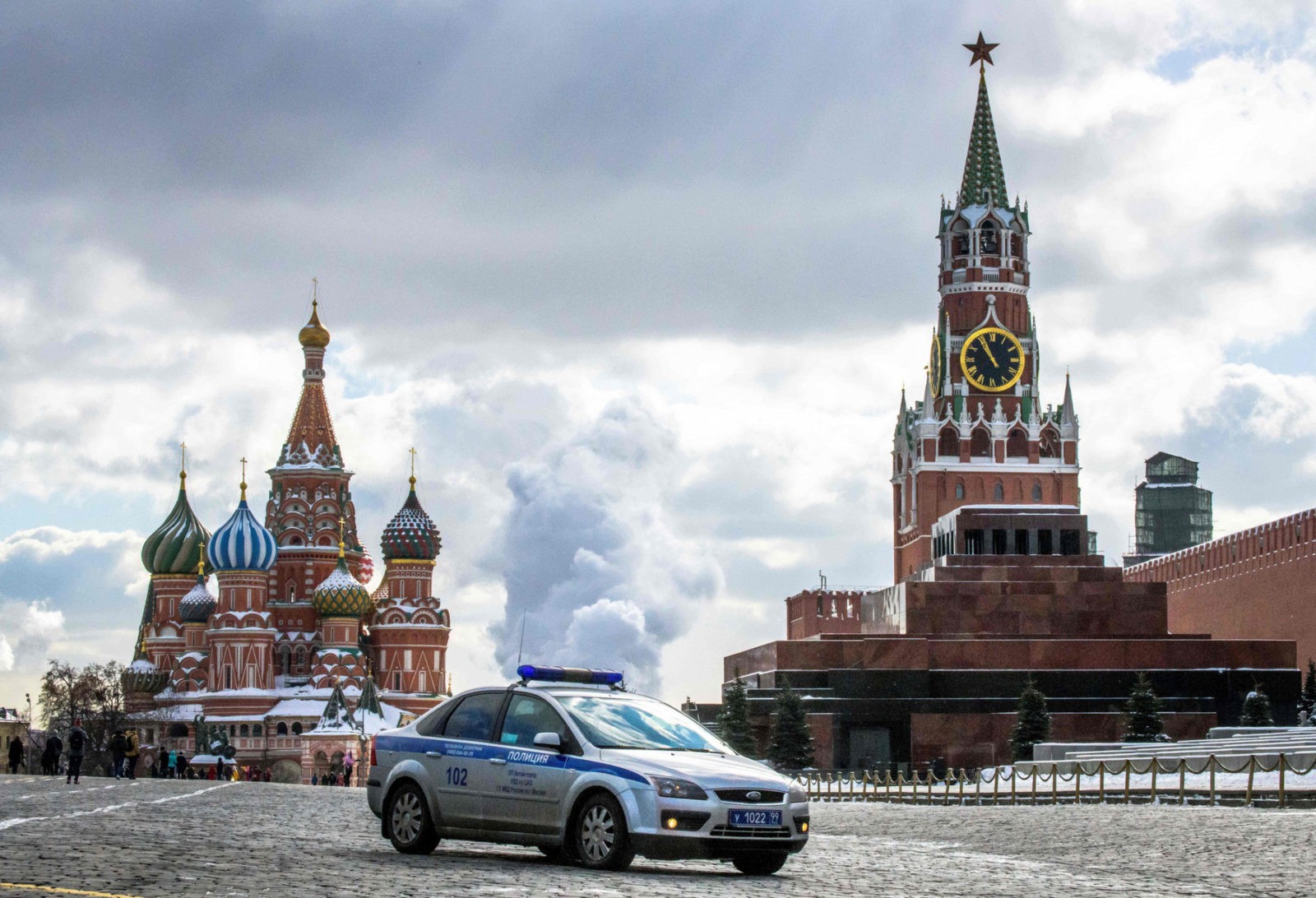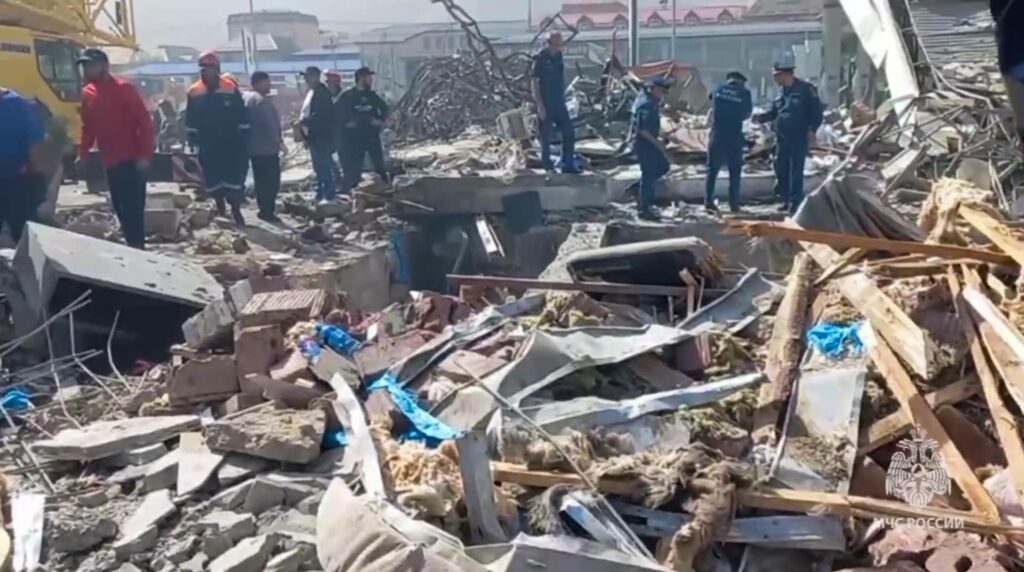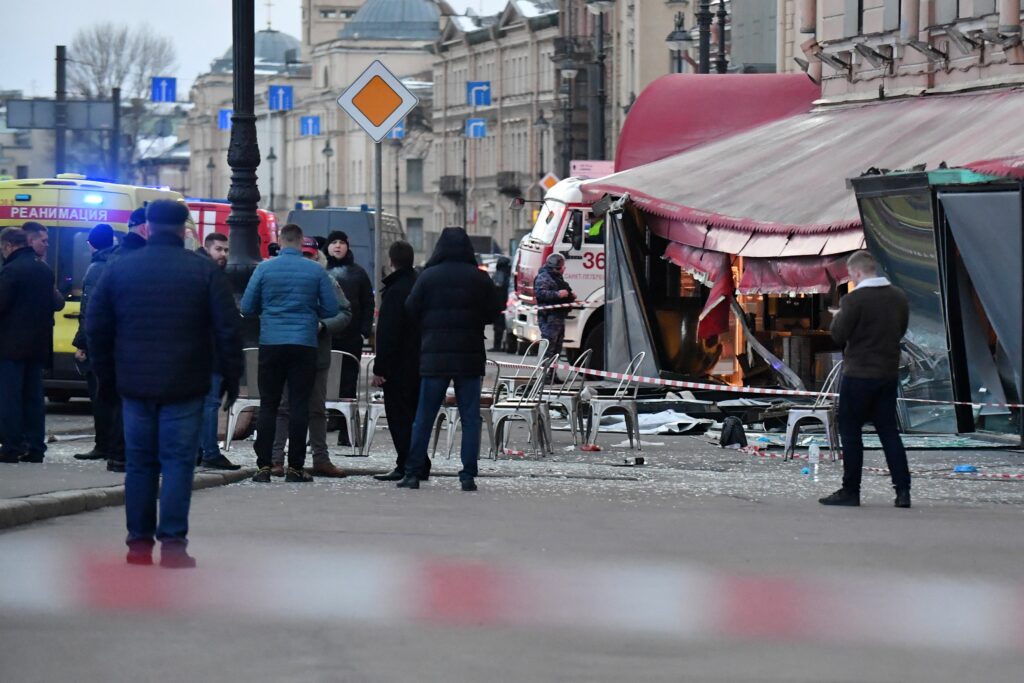In February 2019, Vladislav Surkov published an article describing the state of affairs in Russian and western politics and the role Vladimir Putin plays in the world today. As well as being a futile attempt to legitimise Putin’s system of governance, Surkov’s article openly stated that the state’s “military and law enforcement functions” are crucial when it comes to managing a vast and resource rich territory with a diverse population and a number of geopolitical rivalries. In this, the disgraced Kremlin adviser’s thesis echoes many contemporary studies of Russian politics. These show that security issues, broadly defined so as to include everything from strategic and military affairs to cultural life, take an integral place, sometimes rhetorical and often practical, in the Russian political system. In a new series of articles, For Your Safety, Riddle examines how national security manifests itself in all walks of Russian life, from domestic socio-economic policy to international relations.
Always on Red Alert
Throughout Russian history, issues of state security have often taken precedence over individual freedoms and rights. This approach is strongly felt in Russia’s modern day national myth, which revolves around the historical need to secure the state’s territorial integrity and political sovereignty.
The Second World War is the most crucial foundational event in modern Russian history. As Ivan Kurilla has written, the events of 1939-1945 have had an immense impact on Russia’s foreign and domestic policy ever since.
Firstly, the war narrative determines Europe’s subordinate position in Russian foreign policy. The dominant view is that Russia is a victorious power which liberated Europe from the evils of Nazism. At the Yalta Conference in 1945, Winston Churchill and Franklin D. Roosevelt agreed with Stalin that the Soviet Union, by virtue of the country’s enormous losses during the war, had a great moral authority to determine the future of Europe. If during the Cold War, part of Europe was indeed Soviet-dominated, then the collapse of the Soviet Union brought about a turning point: “liberated” Europe suddenly declared that it had in fact been occupied. The Kremlin begged to differ. To this very day, the Second World War is officially a defining event for Russian foreign policy; any attempt, real or perceived, to revise its outcome is seen as completely unacceptable.
Secondly, the Russian government does not publicly distinguish the actions of the totalitarian Stalinist regime from the heroism and suffering of the Soviet people (including Russians) during the war. This distinction has an important influence on domestic politics: Russian society and the Russian state are inseparable, hence speaking out against the government is perceived as speaking out against the Russian people. As Vyacheslav Volodin succinctly put it: “If there’s Putin, there’s Russia. If there’s no Putin, there’s no Russia.” This mythology of state power is ideal for the government. Any critical discussions about or denunciations of Stalinism provoke a nervous reaction from the Kremlin, for whom any reassessment of tethering the country’s security to the survival of the regime represents an ideological threat. As such, security issues conceptually percolate through to many other aspects of Russian public and political life.
It should therefore come as no surprise that official rhetoric about today’s international competitors and foreign policy threats is also historically conditioned. The Mongols, Tatars, Crusaders, Swedes, Turks, Napoleon, the anti-Bolshevik coalition during the Russian Civil War, Nazi Germany, and today the United States have always wanted and still want to subdue Russia due to its huge territory, strategic geopolitical position, and abundant natural resources. In this regard, all these foes, past and present, are reflected in one single image of the external enemy. That is why fake quotes by Margaret Thatcher (“Only 15 million inhabitants on the territory of the USSR can be economically justified”) and Madeleine Albright (“Neither the Far East nor Siberia belongs to Russia”) are so popular. At the same time, official historiography presents almost all of Russia’s military interventions abroad (from the Soviet-Finnish War to the 1939 partition of Poland, the 1979 invasion of Afghanistan, and more recent military operations in Ukraine and Syria) as defensive campaigns aimed solely at preventing the existential threat of foreign invasion.
Meanwhile, the authorities also have to reckon with domestic political opponents whom they deride as agents of “other states.” They are seen as members of a fifth column whose border with the opposition is, as Vladimir Putin put it, “a very fine line.” The Kremlin reserves the right to decide who is a member of the opposition and who is a member of the “fifth column.” This of course undermines citizens’ unconditional rights to make their own choices, a fundamental element of democracy. Suppressing this “fifth column” requires powerful law enforcement agencies. Their heavy handed tactics and repressive laws, as the Kremlin sees it, are crucial in establishing this “fine line” between legitimate and illegitimate dissent. Nevertheless, employees of law enforcement agencies are routinely portrayed as true patriots of Russia; the strong arm of the state, the enforcers of its will, and the “defenders of the people.” At the same time, torture and other violations of human rights are explained away as necessities (such as countering terrorism), or the actions of defective “lone wolves,” employees of law enforcement agencies who are later argued to have never belonged to these “defenders of the people” after all, or even sacked shortly before committing the crime.
Defenders of social norms and traditional cultural values also frequently frame their position as one of national security. As Elizaveta Gaufman has written, official discourse in Russia portrays homosexuals and irregular migrants as destructive elements which weaken society, corrupt its values, and reduce the “indigenous” population (that is, people integrated into the national state mythology.) Thus the acts of Pussy Riot, Ruslan Sokolovsky (the videoblogger who filmed himself playing Pokémon Go inside a Yekaterinburg church — ed.), and other perceived anti-religious moves constitute an attack on one of the main pillars of Russian statehood: the Russian Orthodox Church, if not all the main monotheistic religions. The words of Vsevolod Chaplin, a high-profile and staunchly conservative cleric in the Russian Orthodox Church, are a particularly radical example of religious justifications for mass repression. “Even God […] directly authorised and authorises the future destruction of a large number of people as a warning to others. […] Sometimes society needs the destruction of those who are worthy of destruction,” proclaimed Chaplin. It is obvious that if an opposition activist uttered the same words about the authorities, he would have been arrested on suspicion of extremism.
Accordingly, security issues are the most important ideological and material factor influencing Russian politics today. Alongside the rhetorical sway it holds over state discourse, this securitisation can also be seen in formal institutions, as indicated by the powers of the police, the FSB, and the Ministry of Justice. No less revealing are the centralisation of the state budget, the mobilisation potential of state enterprises, and the authorities’ control over the media. In short, the presence of an existential threat naturally legitimises the use of extraordinary measures. This in turn requires more funds and more employees, who then legitimise their activities, requesting even more resources, subordinates, and legal remit. And so the screws turn tighter.
Delegitimising this growing securitisation of the Russian state and the society it means a shift in worldview. That would mean no longer perceiving every phenomenon as a potential threat (or learning to normalise threats when they do exist.) Crucially, decision making processes could be returned to the realm of ordinary policymaking; for example, understanding drug addicts as fellow human beings who are in trouble and need medical and social assistance, rather than as criminals and trash. These changes are an important element in any process of democratising Russian politics.
A Partner at the Gates
On the whole, the Russian case is nothing unique. When it comes to national security, even democratic countries have to be dynamic in striking a balance between the interests of state and society. The most studied example is that of the United States, for which the end of the Cold War and the terrorist attacks of 9/11 were defining moments in security policy. The collapse of the Soviet Union led to a vacuum in the international security system; in the aftermath of the Cold War, the Clinton administration led the US to take the role of the dominant military power in this new order. But the attacks of 9/11 created a new existential threat to the US: global terrorism. In response, the Bush administration launched an invasion of Afghanistan together with its coalition partners. Later still, with the help of falsified data on the presence of weapons of mass destruction in the country, the Bush administration launched an invasion of Iraq. Thanks to a loud chorus of supportive voices, the US authorities managed to link perceptions of Iraq and Saddam Hussein to sponsorship of global terrorism and a threat to global security. Opponents of the war had no opportunity to stop it. The invasion also provided opportunities for US intelligence agencies to significantly expand their capabilities, including tapping telephone conversations, lengthy pre-trial detentions, and covering up the torture of terrorist suspects. In this sense, the democratic system has an important drawback compared to autocracies: state security decisions cannot be simply cancelled or amended without either demonstrating victory or acknowledging either an initial mistake. This is a headache the Russian authorities, in all their flexibility, do not have to confront.
Recall Vladimir Putin’s behaviour after a Russian Su-24 aircraft was shot down in 2015. Putin denounced Turkey as an accomplice of terrorists, promising grave consequences in retaliation for this “stab in the back.” Leader of the Liberal Democratic Party of Russia Vladimir Zhirinovsky even declared that it would be very easy to annihilate Istanbul: “It would be enough to drop a single nuclear bomb [in the Bosphorus] and it will be washed away.” But just a few months later Turkey had become a valued partner of Russia. Military ties were restored and sanctions were lifted; the Kremlin’s rhetoric was diametrically opposed to what it had once been. A few orders were enough to turn a threat into a partner, and vice versa.
Meanwhile, Russia’s domestic politics betray a schizophrenic dualism in perceptions of the West. On one hand, Ilon Musk’s achievements are portrayed as frivolous public relations stunts. On the other hand, any positive tweet the entrepreneur makes about Roskosmos is broadcast on news channels at prime time as an object of pride. Similarly, while the Kremlin’s official rhetoric boasts that the Russian armed forces are the strongest in the world, some positive remarks about the Russian military of a retired Major General of the US Army are treated with high acclaim, immediately piquing the highest interest from Kremlin-controlled media. On the one hand, Europe is “decaying” and the US is beset by thousands of problems which could lead “to the imminent breakup of the country.” On the other hand, repressive laws passed by the State Duma are justified by reference to analogous laws already existing in that same “decaying” Europe and “disintegrating” US. Consequently, the Kremlin’s inability thus far to put forward a serious positive agenda for the country’s development has led to Russian society taking a peculiar perspective, in which the West is simultaneously a threat to be feared and an example to be emulated.
In this sense this widespread securitisation, which takes multifaceted forms ranging from state security to the security of traditional culture, the security of the Russian economy, and the security of ordinary Russians, has come to play a significant role in Russia’s foreign and domestic policy. In many ways, the official narrative locates this threat in the “global West,” preeminently the US. This discourse is extremely dynamic, sometimes in a positive sense, providing motivations for political, socio-economic, and technological development. But something has to give. Discrediting the idea that Russia’s current security policies are objectively effective as a “security” tool (de-securitisation policy) means popularising the idea that they are incompatible with the country’s further socio-economic development (politicisation of development.) Doing so will cut the Gordian knot withstraining the modernisation of Russian society. As this has happened before, (during the late 1980s) it can happen again. Only this time, two things must not be forgotten: the need to create rigid structural rules of the game and a positive strategic agenda. For the sake, of course, of universal security.
The fourth part of the series ‘Safety first’: the changing role of veterans’ organisations in Russia
Part five of ‘Safety first’: security, threats and academia
Part 6 of “Safety first”: State – and Human-level Security in Russia









